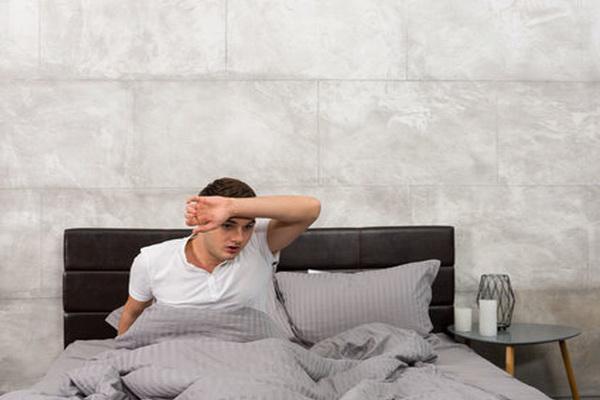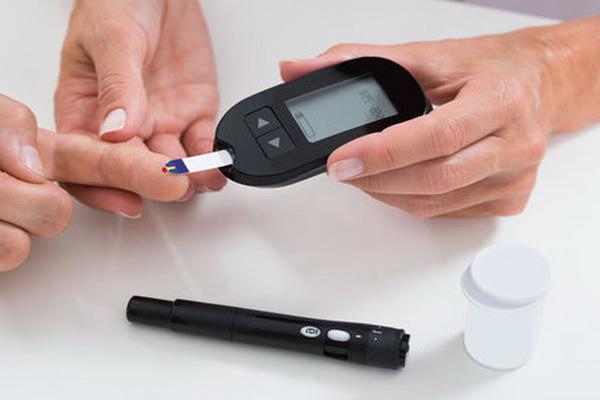Зміст
Night sweats can be normal if the bedroom is uncomfortable, or if you sleep under thick blankets or synthetic fiber pajamas. However, night sweats can have many other causes, both fairly simple and very serious. It is often a symptom of fever or viral and bacterial infections, but also the effect of taking certain medications and even herbs and fruits.
Frequent and recurring night sweats that occur for no apparent reason are cause for concern. They can then indicate hyperthyroidism, hypoglycemia, diabetes, and even cancer. Therefore, it is better not to ignore this problem and see a doctor as soon as possible. What shows up in night sweats, and when can it be dangerous?
Night sweat: Improper sleep hygiene

Night sweats are characterized by excessive perspiration at night and during sleep. This requires a change of bed linen and clothing and is often the cause of awakening from sleep or problems falling asleep. Night sweats are not always indicative of a serious health problem. This is normal, physiological and occurs periodically due to various factors.
Excessive sweating can be painful in the heat of the summer or when bedroom conditions are inadequate, such as when the room temperature is too high or there is no ventilation. Also, sleeping in synthetic, breathable pajamas and thick blankets can cause you to sweat. Improving sleep hygiene is often enough to get rid of this ailment. However, when night sweats persist, it may indicate other problems.
Night sweat: Diaphoretic, herbs and fruits
Excessive sweating at night can also be caused by taking certain medications, such as antipyretic and diaphoretic. Medications, anti-inflammatory drugs, or antidepressants can also cause night sweats. Certain herbs and fruits are also diaphoretic, such as linden, willow bark, elderberry, or raspberry.
One of the most common causes of night sweats is infections of all kinds, from the common cold. There is an increase in body temperature and an increase in body temperature, to which the body reacts with increased sweating (especially in the evening). May be accompanied by chills and cold sensations. However, night sweats can be a symptom of more serious bacterial and viral infections such as tuberculosis, brucellosis, osteomyelitis, endocarditis, and AIDS.
Night sweat: Diabetes

Diabetes can also be a more serious cause of night sweats. At night, a decrease in glucose levels is observed, which leads to hypoglycemia. Then a lot of cold sweat is poured out on the person. Therefore, diabetics should remember to use insulin correctly and eat at the right time.
Night sweat: Hormonal disorders
Hormonal disturbances can also occur during night sweats. People with hyperthyroidism complain of increased sweating at night. It is accompanied by symptoms such as hand tremors, heart palpitations, weight loss, and nervousness. It is worth checking the level of TSH and thyroid hormones (thyroxine and triiodothyronine) and visiting an endocrinologist. Night sweats caused by hot flashes can occur in postmenopausal women when their hormones fluctuate.
Night sweat: Sleep apnea
Night sweats can also be caused by sleep apnea. The tongue and throat become constricted during sleep, resulting in a temporary reduction in airflow through the airways or no airflow. This manifests itself in snoring, with a long silence between snoring. Apnea is accompanied not only by night sweats, but also by increased heart rate, shortness of breath, restlessness, headache and fatigue upon waking.
Night sweat: Crayfish
Night sweats should not be underestimated, as they can also be a sign of cancer. They often appear in the early stages of development of leukemia and Hodgkin’s lymphoma. Symptoms such as weakness, low-grade fever, swollen lymph nodes, or pale skin are also observed. If we observe such symptoms, we should see a doctor as soon as possible.
Night sweat: Mental condition
Sweating at night can also occur in people with mental health problems. The reason may be severe stress, strong emotions, difficult experiences, as well as neuroses. If, in addition to night sweats, there are headaches and abdominal pains, heart palpitations, tightness in the throat or muscle tension, it is worth visiting a psychologist or psychiatrist.








